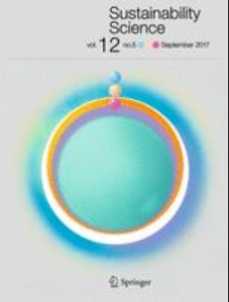
Can ecological distribution conflicts turn into forces for sustainability? A new paper from addresses in a systematic conceptual manner the question of why, through whom, how, and when conflicts over the use of the environment may take an active role in shaping transitions toward sustainability. It presents a conceptual framework that schematically maps out the linkages between (a) patterns of (unsustainable) social metabolism, (b) the emergence of ecological distribution conflicts, (c) the rise of environmental justice movements, and (d) their potential contributions for sustainability transitions. The ways how these four processes can influence each other are multi-faceted and often not a foretold story. Yet, ecological distribution conflicts can have an important role for sustainability, because they relentlessly bring to light conflicting values over the environment as well as unsustainable resource uses affecting people and the planet. Environmental justice movements, born out of such conflicts, become key actors in politicizing such unsustainable resource uses, but moreover, they take sometimes also radical actions to stop them. By drawing on creative forms of mobilizations and diverse repertoires of action to effectively reduce unsustainabilities, they can turn from ‘victims’ of environmental injustices into ‘warriors’ for sustainability. But when will improvements in sustainability be lasting? By looking at the overall dynamics between the four processes, the authors aim to foster a more systematic understanding of the dynamics and roles of ecological distribution conflicts within sustainability processes.
For more details, check https://link.springer.com/article/10.1007/s11625-017-0519-0

The project ENVJUSTICE has received funding from the European Research Council (ERC) under the European Union’s Horizon 2020 research and innovation programme (grant agreement No. 695446)